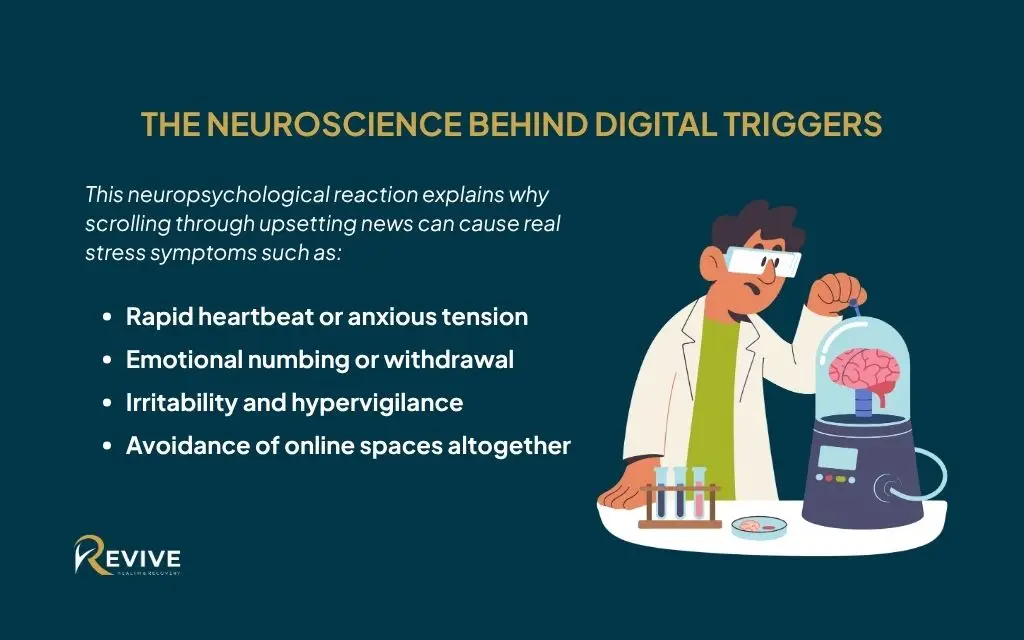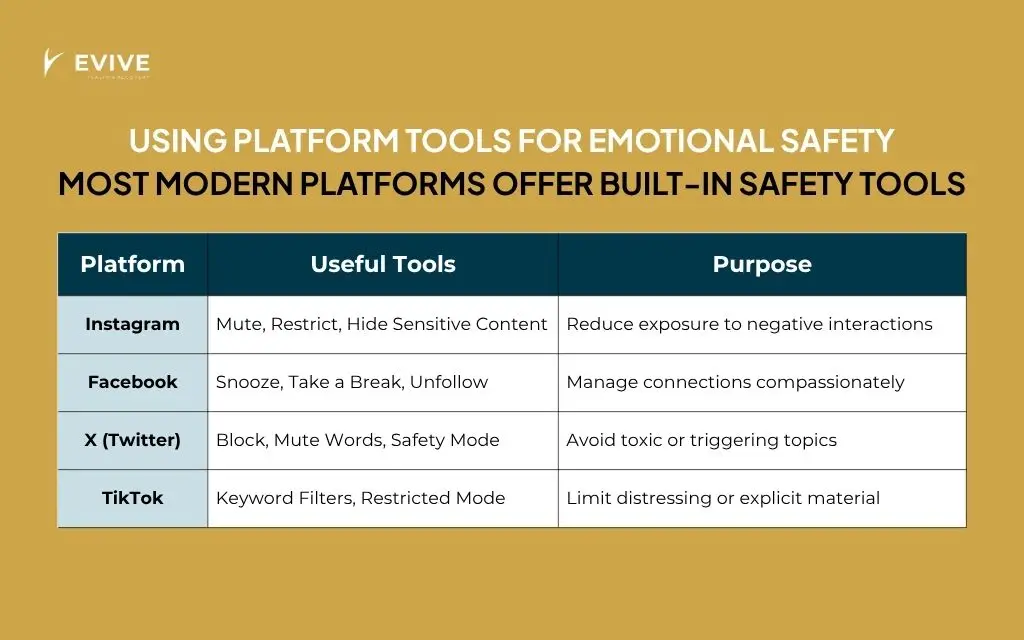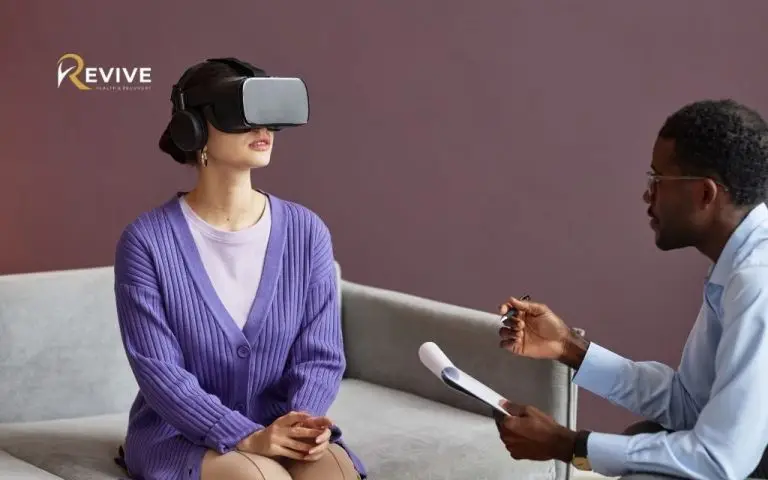Social media connects billions of people, offering community, expression, and education. Yet for trauma survivors, these digital environments can quickly become emotionally overwhelming. Exposure to distressing news, conflict, or insensitive content may reactivate traumatic stress responses, leading to anxiety, avoidance, or emotional exhaustion.
Trauma-informed social media use combines trauma psychology and digital wellness principles. It helps users engage online with awareness of trauma impacts – prioritizing safety, trust, empowerment, and self-regulation. This approach is especially vital in health-conscious cities like Denver, Colorado, where many individuals seek trauma-sensitive mental health care and wellness practices.
The following guide explores the origins, psychological foundations, and practical applications of trauma-informed social media use while highlighting local Denver resources like Revive Health Recovery, which supports trauma survivors digitally and emotionally.
Understanding trauma-informed social media use
What does “trauma-informed” mean?
The trauma-informed approach emerged in mental health care through trauma theory and the Adverse Childhood Experiences (ACE) study, which revealed how trauma shapes the brain and behavior. Key principles include:
| Core Principle | Description | Application to Social Media |
| Safety | Creating emotional and physical security | Using content filters, privacy settings, and trigger warnings |
| Trustworthiness | Ensuring honesty and transparency | Sharing or engaging with reliable, factual content |
| Choice | Empowering personal control | Curating feeds, unfollowing harmful accounts |
| Collaboration | Promoting shared problem-solving | Participating in supportive online groups |
| Empowerment | Building personal and emotional growth | Engaging with trauma recovery communities |
Trauma-informed social media use directly applies these principles to personal online habits, community management, and digital communication ethics.
The Neuroscience Behind Digital Triggers
Trauma alters the brain’s amygdala, hippocampus, and prefrontal cortex, which control fear, memory, and reasoning. When exposed to stressful content (for instance, graphic imagery or political hostility), the amygdala can trigger the body’s “fight, flight, or freeze” response-even though the threat is digital.
This neuropsychological reaction explains why scrolling through upsetting news can cause real stress symptoms such as:
- Rapid heartbeat or anxious tension
- Emotional numbing or withdrawal
- Irritability and hypervigilance
- Avoidance of online spaces altogether
Becoming trauma-informed digitally means recognizing these neurobiological patterns and adjusting online behavior accordingly.

Why social media can be traumatizing
Psychological impacts of unfiltered content
Unfiltered digital exposure may lead to vicarious trauma, where repeated viewing of distressing material causes emotional fatigue comparable to firsthand trauma experiences.
Common sources of digital retraumatization include:
- Continuous exposure to violence in news feeds
- Hostile comment sections or online harassment
- Graphic imagery around current events
- Algorithm-driven amplification of negative content
Emotional boundaries in online spaces
Unlike face-to-face interaction, social media lacks tone regulation, physical cues, or safe disengagement mechanisms. This can heighten emotional intensity, especially when disagreements or triggering topics arise unexpectedly.
Cultivating trauma-informed media practices helps users build emotional shields – protective habits that reduce risk of retraumatization while maintaining online engagement.
Practical strategies for trauma-informed social media use

Setting digital boundaries
Healthy boundaries prevent overexposure and anxiety. Start with:
- Designated usage blocks – Limit scrolling to specific times to prevent emotional overload.
- Content audits – Regularly review accounts and unfollow sources that amplify distress.
- Offline recovery – Balance screen time with mindfulness, breathing, or grounding exercises.
Boundary-setting reinforces autonomy and fosters better emotional regulation.
Curating healing and supportive content
Choose to engage with trauma-sensitive creators who foster validation, hope, and recovery education. Local Denver users can follow community initiatives like trauma-informed yoga programs and psychology-based podcasts.
Suggested content categories:
- Trauma psychology and recovery education
- Mindful living and somatic therapy
- Resilience and self-care strategies
- Cultural or community healing movements
Mindful communication and engagement
Applying trauma-informed communication online involves awareness, tone, and empathy.
Practice mindful communication by:
- Asking for consent before sharing sensitive material.
- Using content warnings for potentially triggering posts.
- Validating others’ experiences rather than debating them.
- Practicing digital compassion by listening without judgment.
Using platform tools for emotional safety
Most modern platforms offer built-in safety tools:
| Platform | Useful Tools | Purpose |
| Mute, Restrict, Hide Sensitive Content | Reduce exposure to negative interactions | |
| Snooze, Take a Break, Unfollow | Manage connections compassionately | |
| X (Twitter) | Block, Mute Words, Safety Mode | Avoid toxic or triggering topics |
| TikTok | Keyword Filters, Restricted Mode | Limit distressing or explicit material |
Learn to use these features proactively for emotional well-being.
The role of mental health professionals and online communities
How clinicians use trauma-informed digital practices
therapists and counselors increasingly extend trauma-informed care into online interactions. Many Denver-based clinicians teach clients to integrate mindful digital engagement within treatment plans: linking exposure control, grounding techniques, and online journaling to regulate emotional triggers.
Educating online audiences
Mental health organizations and educators provide psychoeducation through webinars, social media campaigns, and community building. Examples include trauma-informed awareness weeks or social media challenges promoting compassionate posting.
Building safe digital communities
Online groups rooted in trauma-informed values can be therapeutic substitutes for in-person communities. Key traits include:
- Clear community guidelines discouraging harmful comments
- Moderators with trauma-sensitivity training
- Peer validation and empathy rather than confrontation
Trauma-informed social media use in Denver’s community context
Local relevance: mental health awareness in colorado
Colorado holds one of the nation’s highest rates of trauma-related mental health challenges linked to accidents, natural disasters, and interpersonal trauma. As mental health awareness grows, Denver initiatives emphasize community-centered healing – combining emotional literacy with digital safety education.

Revive health recovery’s trauma-informed approach
Located at 1427 S Federal Blvd, Denver, CO 80219, Revive Health Recovery exemplifies trauma-informed wellness, integrating digital mindfulness with trauma recovery principles. While not an inpatient facility, the center specializes in outpatient healing, mindfulness coaching, and emotional resilience training.
Key Programs Include:
- Individual trauma recovery therapy
- Guidance on safe social media engagement
- Workshops on emotional regulation and self-awareness
- Support circles integrating mindfulness and technology wellness
For assistance, contact Revive Health Recovery at (303) 268-4655 or
contact@revivehealthrecovery.com.
FAQs about trauma-informed social media use
How can I protect myself from trauma triggers online?
Develop healthy routines: limit exposure, unfollow harmful accounts, and use filters to manage triggering posts.
What are the main trauma-informed principles?
Safety, trust, collaboration, choice, and empowerment. Each principle helps users interact online without emotional harm.
Can social media be a healing tool?
Yes. When used consciously, platforms can provide validation, peer connection, and resources for trauma recovery.
How should I support someone triggered online?
Respond with empathy, avoid invalidating their emotions, and suggest mental health resources such as local counseling centers in Denver.
Where can I find trauma-informed digital wellness help?
Revive Health Recovery and other Denver clinics specialize in trauma care, digital mindfulness, and emotional healing support.
Conclusion
Trauma-informed social media use blends psychological insight with digital responsibility. It empowers survivors and compassionate users to transform online interaction into a space of respect and recovery. By creating emotional boundaries, curating safe content, and engaging with trauma-sensitive awareness, Denver residents can make social media a foundation for resilience rather than distress.
If you are navigating trauma and wish to integrate healthier online habits into your healing process, contact Revive Health Recovery today. Visit us at 1427 S Federal Blvd, Denver, CO 80219, call (303) 268-4655, or email contact@revivehealthrecovery.com for 24/7 support. Let Revive guide your journey toward a balanced, trauma-informed relationship with social media.



